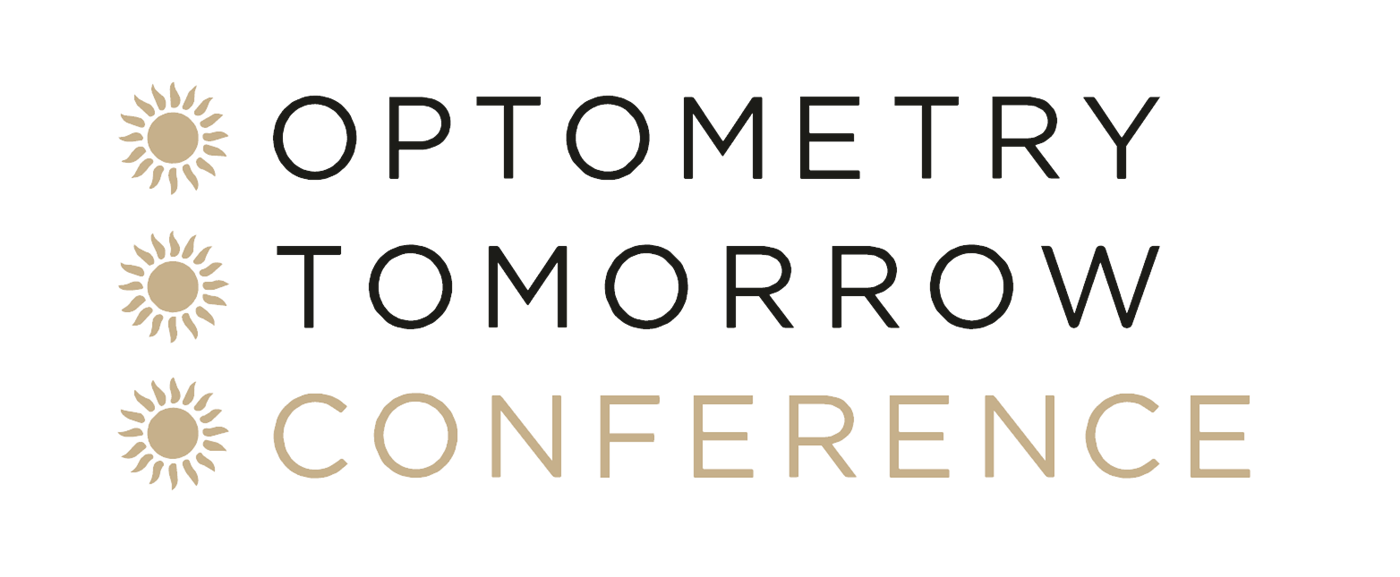LECTURE
Part 1: 2 CPD
Part 2: 1 CPD
BCLA CLEAR™ Presbyopia: Key findings to improve patient care
About the session
CPD ref: C-108419 & C-108420
Description
Building on the global consensus report BCLA CLEAR™ Contact Lenses, BCLA CLEAR™ Presbyopia will be published in the BCLA journal ‘Contact Lens and Anterior Eye’ (CLAE) and will feature work from panels of globally respected experts in the field.
The papers will deliver evidence-based guidance to BCLA members and the wider profession on all aspects of presbyopia and its management to allow for optimal patient care and will contribute to a global consensus with evidence-based research, identification of the gaps in current knowledge and guide industry in what still needs to be achieved.
The lead authors are: James Wolffsohn, Shehzad Naroo, Leon Davies, Jennifer Craig, Maria Markoulli, Christina Schnider, and Philip Morgan.
The following sessions will include presentations from contributors to the papers followed by Q&As.
- BCLA CLEAR™ Presbyopia: Management of Presbyopia with Corneal Techniques - Neema Ghorbani Mojarrad FBCLA
With the development of improved technologies, treatments for visual correction are becoming increasingly popular. This includes management approaches such as orthokeratology, laser vision correction, and corneal inlays, amongst others. In this talk management techniques involving the cornea to correct presbyopia will be discussed. This will include a summary of items included in a pre-operative assessment and managing patient selection, along with discussing the different available treatment options and the evidence of their success. The presentation will also cover postoperative management and information related to the safety and efficacy. This will include discussions on outcomes such as Quality of Life measures and Quality of Vision measures. - BCLA CLEAR™ Presbyopia: Epidemiology and Impact of Presbyopia - Neil Retallic FBCLA
Have you ever wondered how common presbyopia is, whether this varies across different populations and the potential ramifications on the individual, society, and the economy? This session overviews the findings that are most relevant to practice from the BCLA CLEAR publication on the epidemiology and impact of presbyopia. This will include prevalence and factors influencing presbyopia and near effective refractive error coverage by specific subgroups, the impact on patient reported outcome measures, health, mental status, work productivity, the economic burden, recommendations on future needs and highlight areas where further research would be advantageous in supporting our understanding. The focus will be on how we can best utilise the evidence we have available to enhance patient care for those with or approaching presbyopia. - BCLA CLEAR™ Presbyopia: Evaluation and Diagnosis - Marta Vianya-Estopa FBCLA
This presentation will highlight key areas included in the BCLA CLEAR Presbyopia - Evaluation and Diagnosis paper. The session will review objective and subjective techniques related to presbyopia diagnosis and evaluation, factors that might contribute to presbyopia presentation and communication to patients of available strategies for the correction of presbyopia considering access, affordability, efficacy and safety. This session will provide the latest evidence-based information to support attendees adopt new strategies in clinical and/or research practice. - BCLA CLEARTM Presbyopia: Mechanism and Accommodation of Presbyopia – Dr Sayantan Biswas
With over a billion adults worldwide currently affected, presbyopia remains a ubiquitous, global problem. Despite over a century of study, the precise mechanism of ocular accommodation and presbyopia progression remains a topic of debate. Accordingly, this paper outlines the lenticular and extralenticular components of accommodation together with the impact of age on the accommodative plant, neural control of accommodation, models of accommodation, and both historic and contemporary theories of presbyopia. - 5. BCLA CLEAR™ Presbyopia - Management of Presbyopia with Scleral, IOL, and Pharmaceutical Techniques – Professor Shehzad Naroo FBCLA
Understanding the mechanism of human vision is a wide and challenging area of research with contributions from different disciplines such as Ophthalmology, Optometry, Optics, Psychophysics and Neurosciences. Within this area a strong body of research, with important clinical implications, has been ever dedicated to the relationship between the use of new kinds of optical correction of visual problems, the visual outcomes and finally the patient satisfaction when dealing with presbyopia. The interest in this field of research is high because presbyopia (the physiological, age-related, irreversible reduction of the accommodation) is extremely common with the high level of prevalence in the population with an onset around 45 years of age. Traditional theories of presbyopia do not include changes in the sclera in ageing or as a factor in the functional loss of accommodation. Nonetheless, the literature details various suggested treatments that include manipulation of the scleral tissue. These treatments seem to come in and out of fashion and the latest iteration seems to offer additional information about the ageing eye that challenge some of the conventional and more established theories in presbyopia. Aligned with the fact that there is an ageing population presbyopia remains one of the challenges for eye care clinicians and researchers and effective management of it is often termed ‘the Holy Grail’ for ophthalmic professionals. Trials with drugs that alter pupil size and thus depth of focus or drugs that alter refraction may offer some temporary relief to presbyopia too. - BCLA CLEAR™ Presbyopia: Management of Presbyopia with Spectacles and Contact Lenses Specs and CLs - Debarun Dutta FBCLA and Manbir Nagra FBCLA
The BCLA CLEAR™ Presbyopia paper titled ‘management of presbyopia with contact lenses and spectacles’ seeks to outline the history, market situation, clinical management and product performance related to the correction of presbyopia with both contact lenses and spectacles. The history of the development of various optical forms of presbyopic correction are reviewed, and an overview is presented of the current market status of contact lenses and spectacles. Clinical considerations in the fitting and aftercare of presbyopic contact lens and spectacle lens wearers are presented, with general recommendations for best practice. Current options for soft lens correction of presbyopia include soft simultaneous, rigid translating and rigid simultaneous options, in addition to monovision. Spectacle options include single vision lenses, bifocal options, and a range of progressive addition lenses. The comparative performance of both contact lens and spectacle lens options is presented.
With a significant proportion of the global population now presbyopic, this overview is particularly timely and is designed to act as a guide for researchers, industry and eyecare practitioners alike.
Target Audience
- Optometrist
- Contact Lens Optician
- Dispensing Optician
Domains and learning outcomes
- Part 1
Clinical practice
5.3 Be aware of current good practice and research developments in the area of presbyopia and consider how you may apply this knowledge in your clinical practice
7.1 The relevant knowledge to conduct an adequate assessment for the purposes of the optical consultation when dealing with a patient who has presbyopia.
Communication
1.3 The ability to assist patients in making informed decisions about their care with regards to their presbyopia. Respect the choices they make.
Specialty CPD - contact lens optician
Consider how latest advances in the field of presbyopia control may impact your patient care
- Part 2
Clinical practice
5.3 Be aware of current good practice and research developments in the area of presbyopia and consider how you may apply this knowledge in your clinical practice and manage your patients.
Communication
1.3 The ability to assist patients in making informed decisions about their care with regards to their presbyopia. Respect the choices they make.
Specialty CPD - contact lens optician
Consider how latest advances in the field of presbyopia control may impact your patient management and care
Chair

Professor Philip Morgan FBCLA

Speakers

Dr Debarun Dutta FBCLA MCOptom

Dr Debarun Dutta is a tenured lecturer at the School of Optometry, Aston University, Birmingham and a council member of BCLA. He is responsible for both excellence in research and teaching of optometry. His particular area of interest is contact lenses, eye infections, antimicrobial strategies, ocular surface and dry eye. After completing graduation in optometry, Dr Dutta completed PhD from Brien Holden Vision Institute, Sydney and then joined the School of Optometry and Vision Science, University of NSW where he worked at various capacities including as a postdoctoral research fellow and associate lecturer.
Dr Dutta received various awards and grants globally, and currently lead a clinical research team including fellows, PhDs and professional doctorate candidates. He is a fellow of BCLA, fellow of American Academy of Optometry, and fellow of higher education academy, UK.

Dr Neema Ghorbani Mojarrad BSc FBCLA MCOptom Prof Cert Glauc Prof Cert LV

Neema is an Assistant Professor at the University of Bradford. He is the Vice Chair of the British and Irish University and College Contact Lens Educators (BUCCLE), which promotes collaboration and dissemination of evidence-based contact lens knowledge. He is the vice-chair of BUCCLE, an associate editor of BMJ Open Ophthalmology, and holds fellowships for both the BCLA and IACLE.
His research interests include myopia management, contact lenses, and anterior eye. He has won the 2015 Association of Optometrists Newly Qualified Optometrist of the Year award, the 2021 VDCO Peter Abel research prize, and The College of Optometrists 2022 George Giles prize.
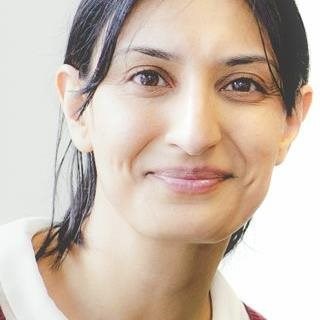
Dr Manbir Nagra FBCLA

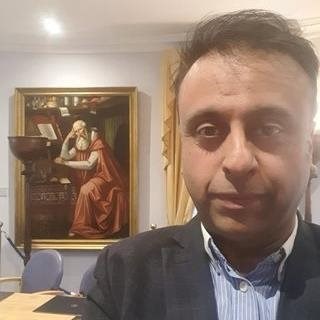
Professor Shehzad Naroo MSc PhD FBCLA FCOptom

Shehzad Naroo is a Professor at Aston University (UK) and teaches in the area of anterior eye. Shehzad’s research interests include presbyopia, corneal biomechanics, laser refractive surgery, cataract and lens surgery, intraocular lenses, sports vision and business aspects of eye care.
He has authored and co-authored over 200 publications (including peer-reviewed, editorials, textbook chapters, non-peer-reviewed etc.). Shehzad has successfully graduated 22 higher degree students (19 Doctorates, and three MScs), and is currently supervising a further nine doctoral students.
He is an examiner for the UK College of Optometrists, an international assessor for the General Optical Council (UK) and advises for medico-legal ophthalmic cases. He is the Editor-in-Chief of the BCLA journal ‘Contact Lens and Anterior Eye’. He is a past recipient of World Council of Optometry International Optometrist Award (2015), related to philanthropic work in countries with less developed health care systems.

Neil Retallic FBCLA MCOptom Prof Cert LV

Neil is an optometrist with experience of working within practice, education, industry, and professional services roles. He is currently the Head of Professional Development at Specsavers and an Assessor and Examiner for The College of Optometrists.
He has been involved with numerous organisations across the sector as a council, committee and/or executive board member and is the Immediate Past President of the British Contact Lens Association and part of the General Optical Council Education Committee.
He is a passionate educator and has created, published, and delivered education across the globe. He has received fellowships from the British Contact Lens Association and International Association of Contact Lens Educators and is currently completing a part-time PhD on health and well-being aspects among the profession. He has actively participated in charity work with Vision Aid Overseas and Special Olympics.
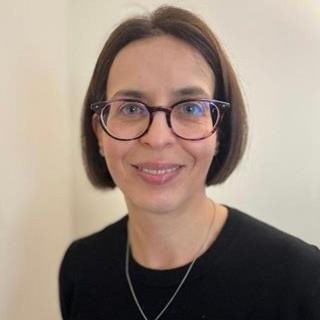
Dr Marta Vianya-Estopa OD(EC) PhD FBCLA MCOptom

Dr Marta Vianya-Estopa is an Associate Professor at Anglia Ruskin University (Cambridge). Prior to this, Marta worked in industry and clinical settings.
She holds a fellowship from the BCLA and is a member of the British and Irish University and College Contact Lens Educators (BUCCLE). Her research focuses on contact lenses and she has presented at a variety of national and international conferences.
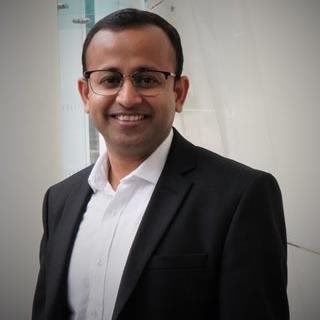
Dr Sayantan Biswas

